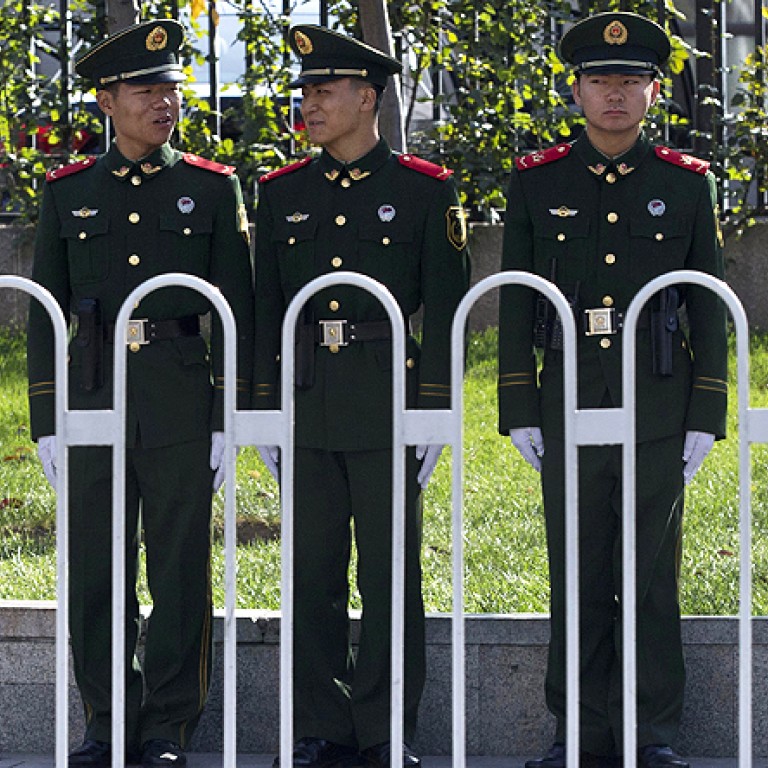
Communist Party vows to uphold its leadership on eve of third plenum
China’s Communist Party asserted its leadership credentials in a lengthy document published on Friday, the day before it starts a key meeting to set the economic agenda for the next decade.
While party leaders have promised unprecedented reforms at the four-day closed-door plenum, these will focus on economic issues, and there have been no expectations of Western-style political reforms.
In a full-page article in the official , the party’s historical research institute was emphatic that China could only prosper under the party’s leadership.
For those who “preach the indiscriminate copying of the Western system” the party will “uphold its leadership”, it said.
It warned, as President Xi Jinping has already done, that efforts to undermine the party’s legitimacy by “negating” tragedies such as the 1966-76 Cultural Revolution, which preceded landmark economic reforms begun in the late 1970s, would only sow the seeds of the party’s own destruction.
“The ancients had a saying: ‘If you’re going to destroy somebody’s country, you must first wipe out their history’,” the institute wrote.
“From an analysis of enemy forces at home and abroad, you can see that their negation of the period before reform and opening-up is to negate our party’s great historical achievements ... [they are] demonising our party so as to deny the Chinese Communist Party’s position in power.”
The party will not stand for this, and continue on its path of “socialism with Chinese characteristics”, it added, referring to its programme of market-oriented economic reforms.
“Uphold and develop socialism with Chinese characteristics, neither walking down the closed and rigid road nor taking the evil road of changing [our] flags and banners,” it said, an expression commonly used by the party when it talks about not copying Western political systems.
The document echoes an October report in an influential party journal that denounced Western calls for political reform, saying such pressure was aimed at getting rid of the Communist Party.
Before Xi took power in a generational leadership change last November, some had expected him to loosen China’s rigid political system, pointing to the legacy of his liberal-minded father, a former vice-premier.
But Xi has overseen a new crackdown on dissidents and freedom of expression, while at times espousing old school Maoism as he seeks to court powerful conservative elements in the party.
Even without opposition from the party’s old guard, Xi is likely to tread carefully around any kind of political reform. He is steeped in the party’s long-held belief that loosening control too quickly could lead to the disintegration of the country, much like in the former Soviet Union under Mikhail Gorbachev.
Mao – who many historians blame not just for the chaos of the Cultural Revolution but also the millions who died of hunger in the preceding Great Leap Forward – cannot have his legacy ruined just because of his mistakes, the research body said.
“To do that not only would go against historical facts and the will of the people, but will certainly lead to extremely serious political consequences,” it wrote.
China has never fully accounted for the events of the Cultural Revolution or the Great Leap Forward, and public discussion is limited.
Just 33 per cent of Chinese want political reform, a poll by the , an influential tabloid owned by the , showed.

